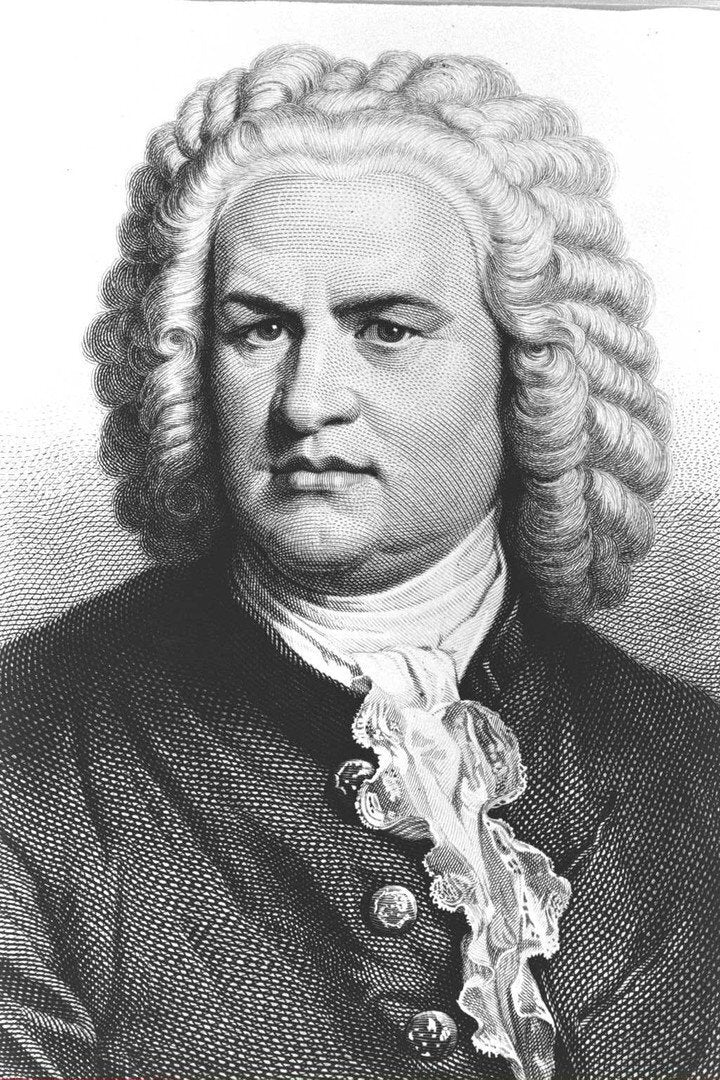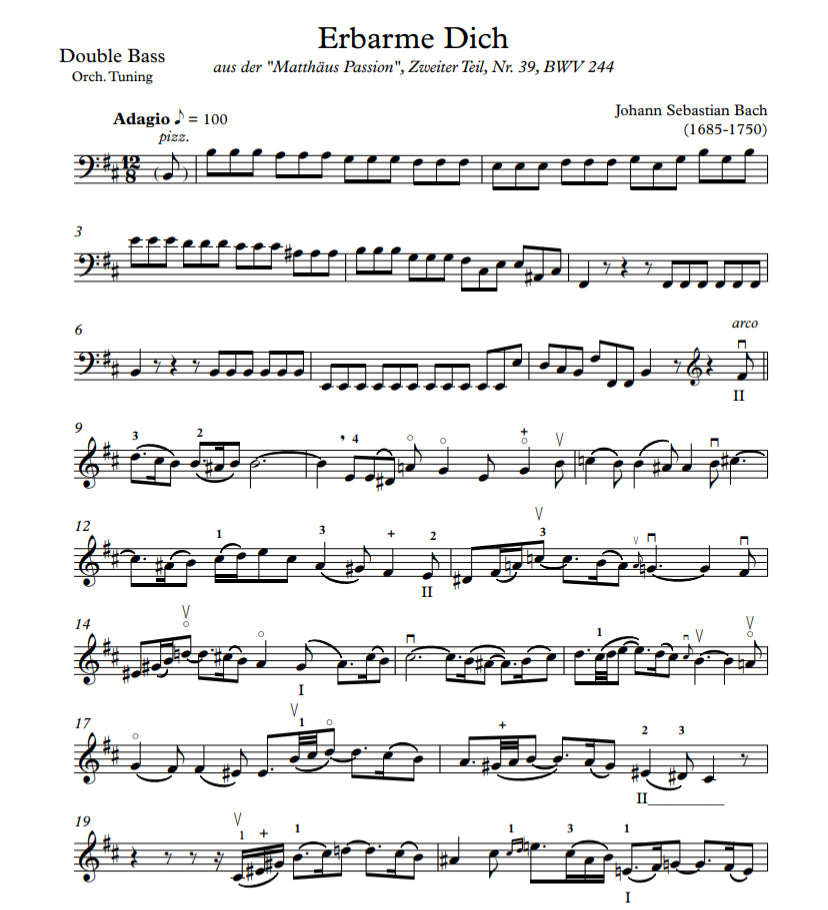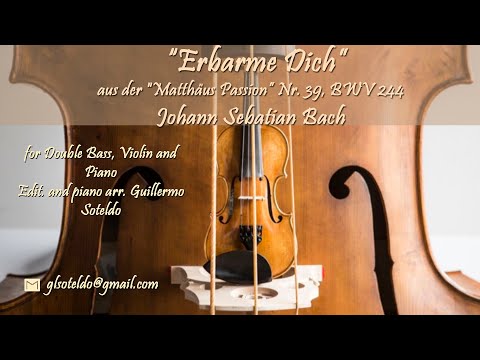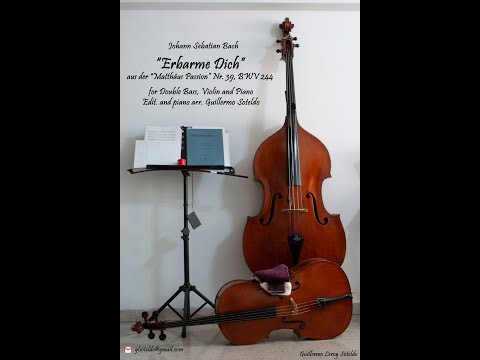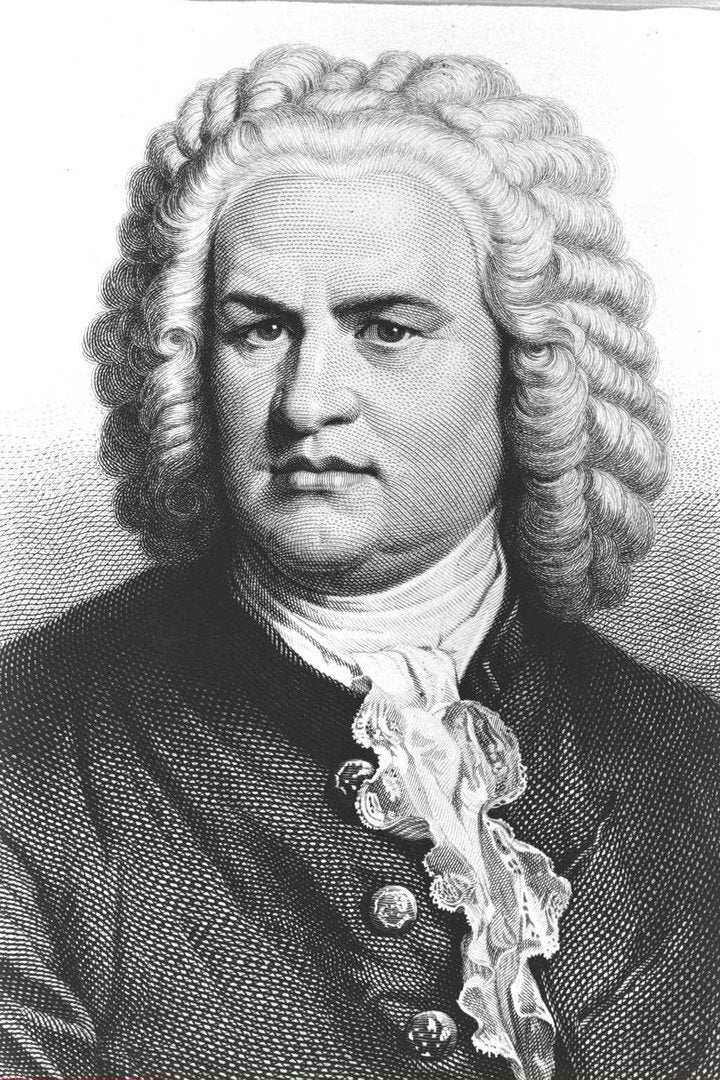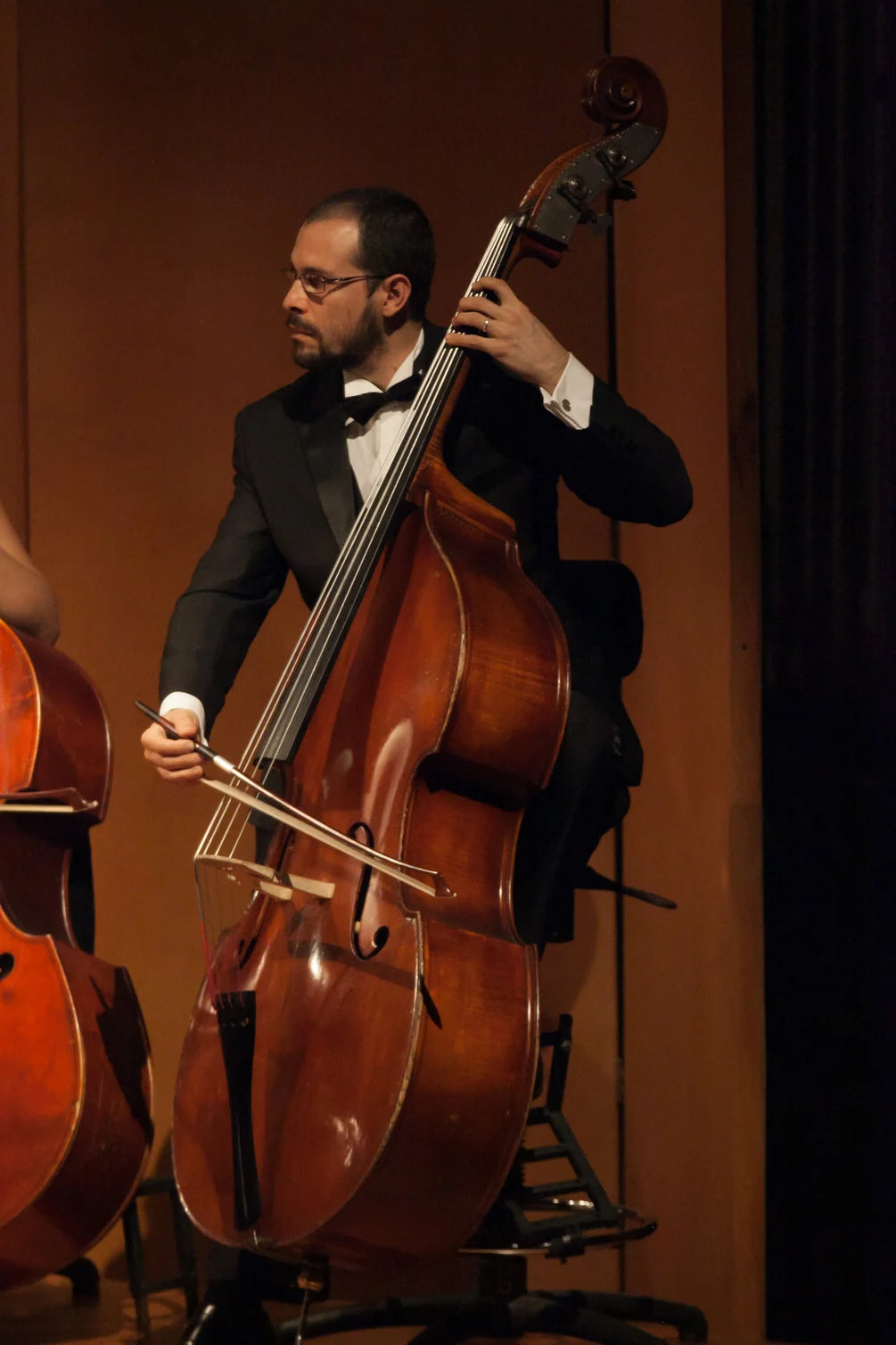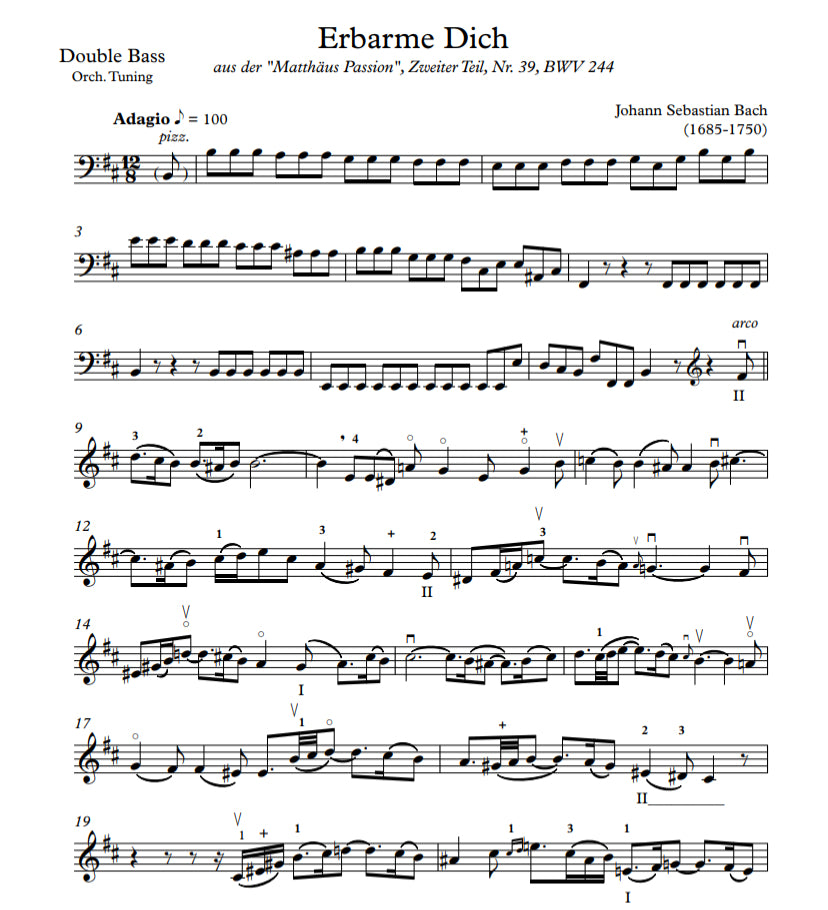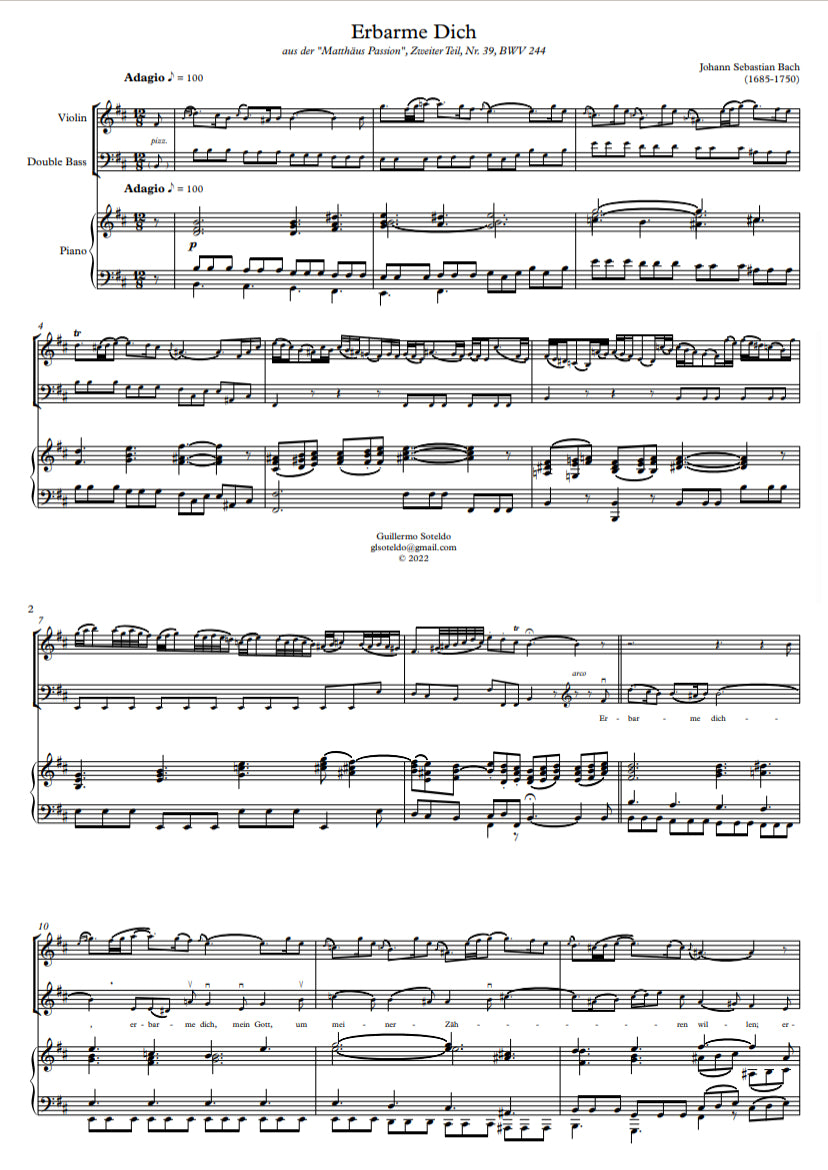Guillermo Soteldo
J.S. Bach: Erbarme dich, mein Gott for double bass (BWV 244), violin (or violincello), and piano (edited by Guillermo Soteldo)
J.S. Bach: Erbarme dich, mein Gott for double bass (BWV 244), violin (or violincello), and piano (edited by Guillermo Soteldo)
Couldn't load pickup availability
About the Aria
Original Aria for voice alto, violin soloist, strings, and continuo. Adapted for Double Bass, Violin or Violoncello, and Piano
The St. Matthew Passion– Matthäus-Passion BWV 244 –, which depicts the final sufferings, crucifixion, and resurrection of Jesus Christ, contains an aria of great sublimity. The aria expresses Peter’s penitence through the lamenting words of a poem by Bach’s contemporary, Christian Friedrich Henrici (1700 – 1764), writing under the pen name Picander
This aria was originally scored as a duet between alto* voice and solo violin, accompanied by strings and continuo. Peter’s weeping is characterized by melismatic vocal writing and the pervasive presence of appoggiaturas, descending basslines, and clashing dissonances. In the drama, this aria reflects Peter’s solitary heartache in the garden after he denies knowing Jesus three times. It’s set in a lilting B minor at 12/8 time, suggesting the baroque dance rhythm of the siciliano.
This music inspired by Good Friday and Easter, both sacred and secular, is in one of the most sublime and powerful corners of J.S. Bach’s
Text
Erbarme dich, mein Gott,
Um meiner Zähren willen;
Schaue hier,
Herz und Auge Weint vor dir
bitterlich.
Erbarme dich!
“Have mercy, my God,
for my tears' sake.
Look hither,
heart and eyes weep
bitterly before Thee.
The First Performance
The first performance of the St. Matthew Passion was given in 1727. Considering it his most significant work, Bach revised it in 1736. Nonetheless, it was shelved after its initial performances in the St. Thomas Church in Leipzig and promptly neglected. The Passion received a second premiere of sorts in 1829 when the 19-year-old Felix Mendelssohn organized a performance and conducted the work for the first time since Bach did so himself. With this, the concept of "Classical Music" was born, and Bach's St. Matthew Passion has remained one of the monuments of the literature.
New Edition
This Aria has no edition in our repertoire, so I decided to include a transcription from the original score adapting the material for Double Bass, Violin or Cello, and Piano. Adding a plus to our Bibliotheque with this sublime, beautiful, and emotionally powerful work.
*The musical term alto, meaning "high" in Italian (Latin: altus), historically refers to the contrapuntal part higher than the tenor and its associated vocal range. In 4-part voice leading alto is the second highest part, sung in choruses by either low women's or high men's voices. In vocal classification, these are usually called contralto and male alto or countertenor.
